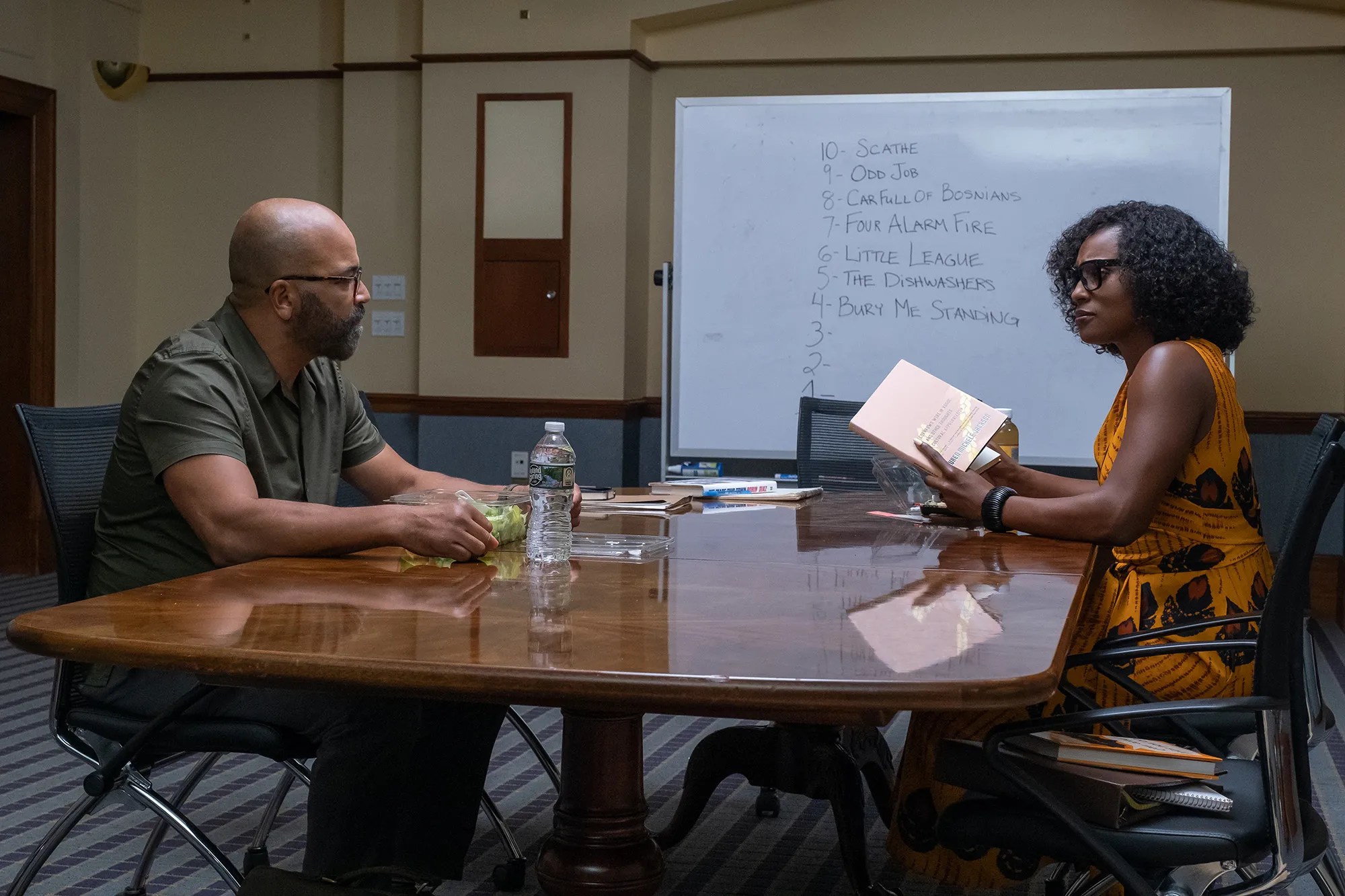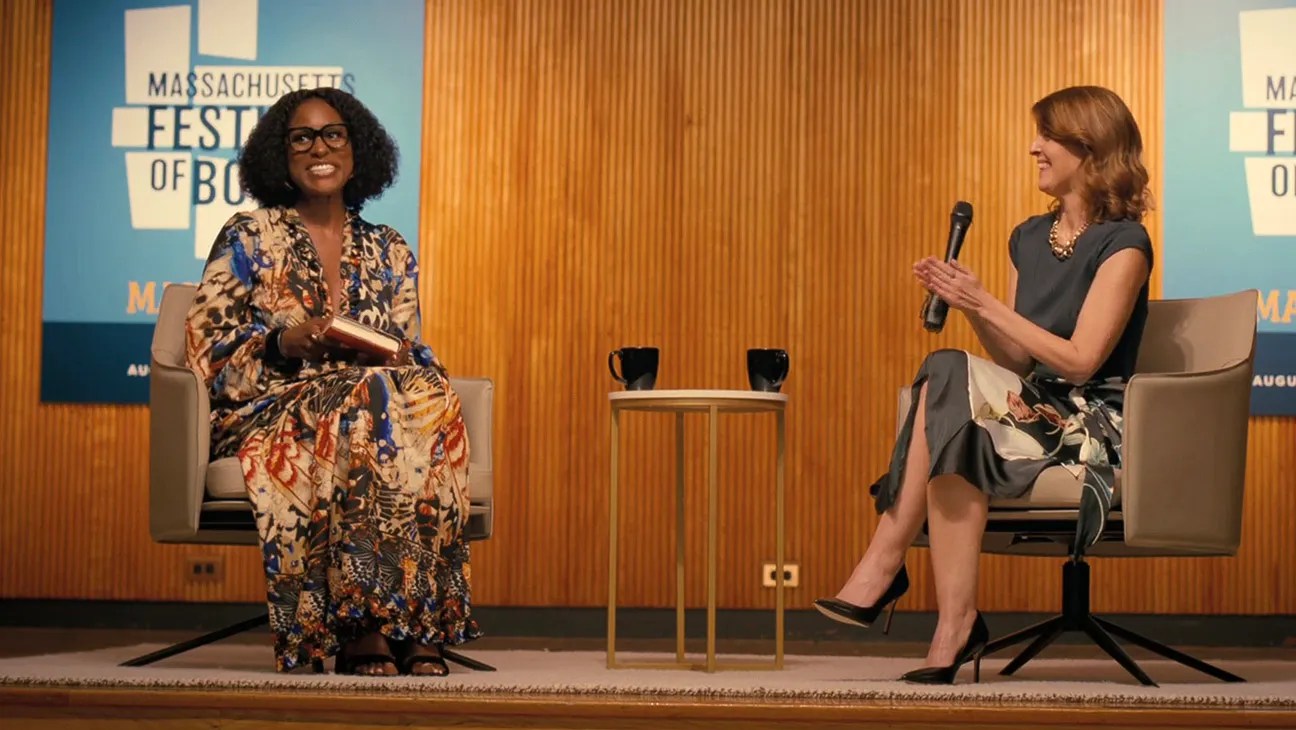In ‘American Fiction,’ an author is frustrated by the actions of the publishing industry, which refuses to acknowledge his stories for not being “black enough.” The film follows Jeffery Wright’s Monk Ellison, who credits the lack of his literary success to the fact that a certain image is associated with what’s considered a Black experience, and anything outside of it by a Black author is deemed unworthy of attention. What inflames him further is when he discovers a young author named Sintara Golden, who finds success because she writes exactly the kind of stories that are expected of a Black writer. Considering that the film critiques the media industry that leans towards stereotypical narratives, one wonders if Sintara Golden is based on a specific person.
Sintara Golden is Fictional But Possesses Similarities to a Particular Author

‘American Fiction’ is based on Percival Everett’s book, ‘Erasure.’ Everett wrote the story out of his own frustration with the publishing industry that encouraged the stories that presented a particular narrative to define the Black experience. In his book, a debut author named Juanita Mae Jenkins (renamed in the film as Sintara Golden) writes a book titled ‘We’s Lives in Da Ghetto,’ in which she writes the story of a pregnant 15-year-old Black girl who lives with her mother, who is a drug addict, and a differently-abled brother. The book becomes an instant bestseller, and there are rumors of it being adapted into a movie. The description of ‘We’s Lives in Da Ghetto’ is quite similar to the plot of another bestselling novel, titled ‘Push’ by Sapphire (a pseudonym for Ramona Lofton), which was adapted into an Academy Award-winning film, ‘Precious.’
Sintara reveals that she decided to write the book after she visited her extended family in Harlem for a few days. She is an Oberlin graduate who moved to New York the day after graduation, landed a job at a publisher a couple of months later, and after reading draft after drafts written by middle-aged white men about their divorce, she decided to write the stories that represented her people.
There aren’t many similarities between Sintara and Lofton, who took the pseudonym of “Sapphire” due to the word being used for a “belligerent black woman.” Lofton herself dropped out of high school and then from the City College of San Francisco. She later attended the City College of New York, got an MFA from Brooklyn College, and had a career as a performance artist and a teacher before she found success as a writer. The only common ground, perhaps, is the similarities between their novels, and that’s what Everett focused on.

It wouldn’t be accurate to say that Sinatra Golden is based on Sapphire, or any particular author for that matter. In fact, Everett was less concerned with the author or even with the kind of stories they were putting out but more with how the publishers and the readers were perceiving the stories and the authors. Like ‘Push,’ he also took a dig at ‘Native Son,’ by Richard Wright, which has plot similarities with Monk’s ‘My Pafology,’ which he writes under the pseudonym of Stagg R. Leigh.
For Everett, the issue wasn’t that so many Black writers were writing about the sad reality and the dark past of Black people. His issue was that the Black writers who weren’t writing about that were not being considered on similar grounds. Their stories were not considered authentic to the Black experience because they didn’t match the perception of people, especially the white gaze. To get his point across, Everett created characters like Monk Ellison and Sintara Golden, who, even though fictional, paint the real picture of the publishing industry.
Read More: Is American Fiction Inspired by an Actual Person?


You must be logged in to post a comment.